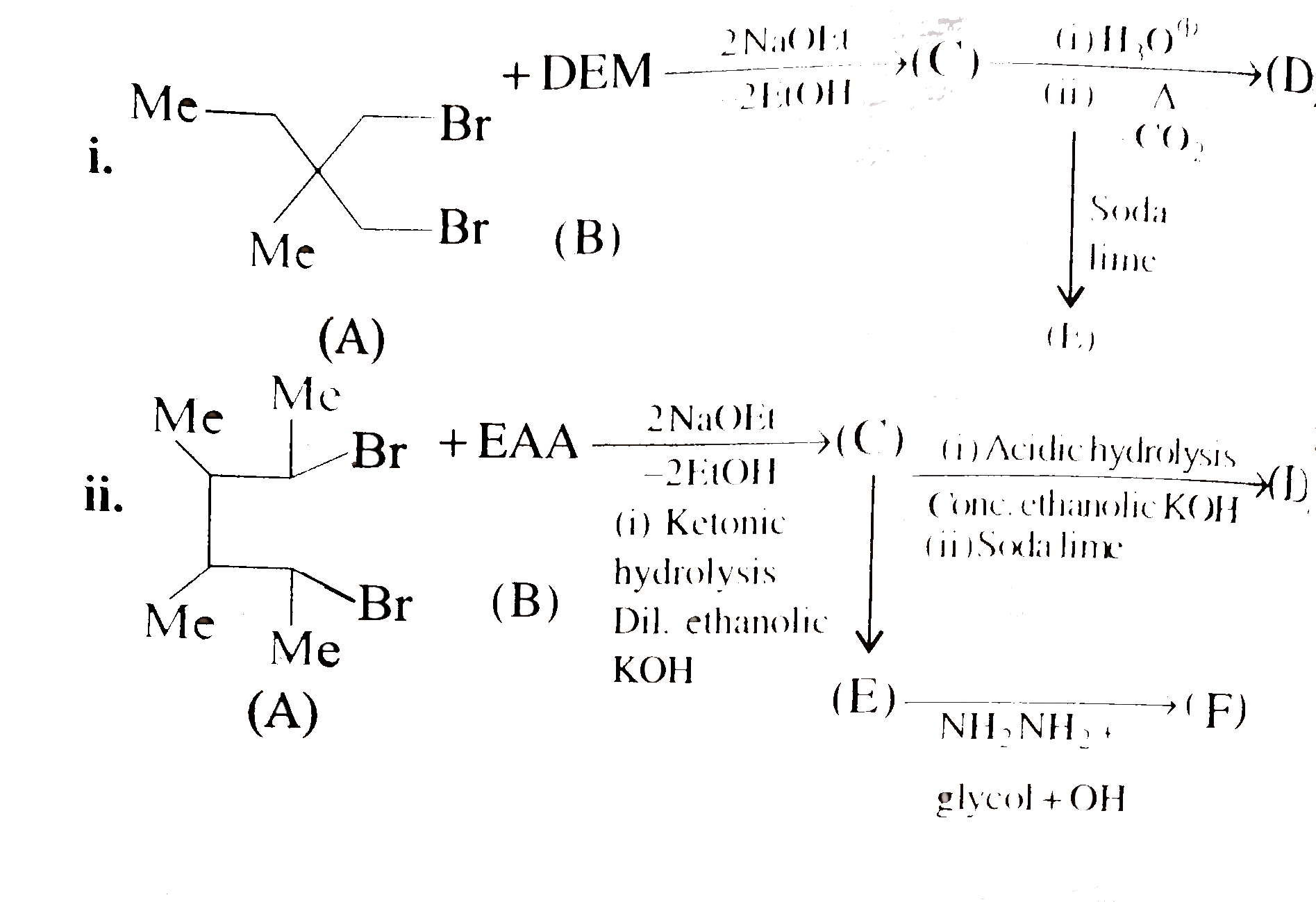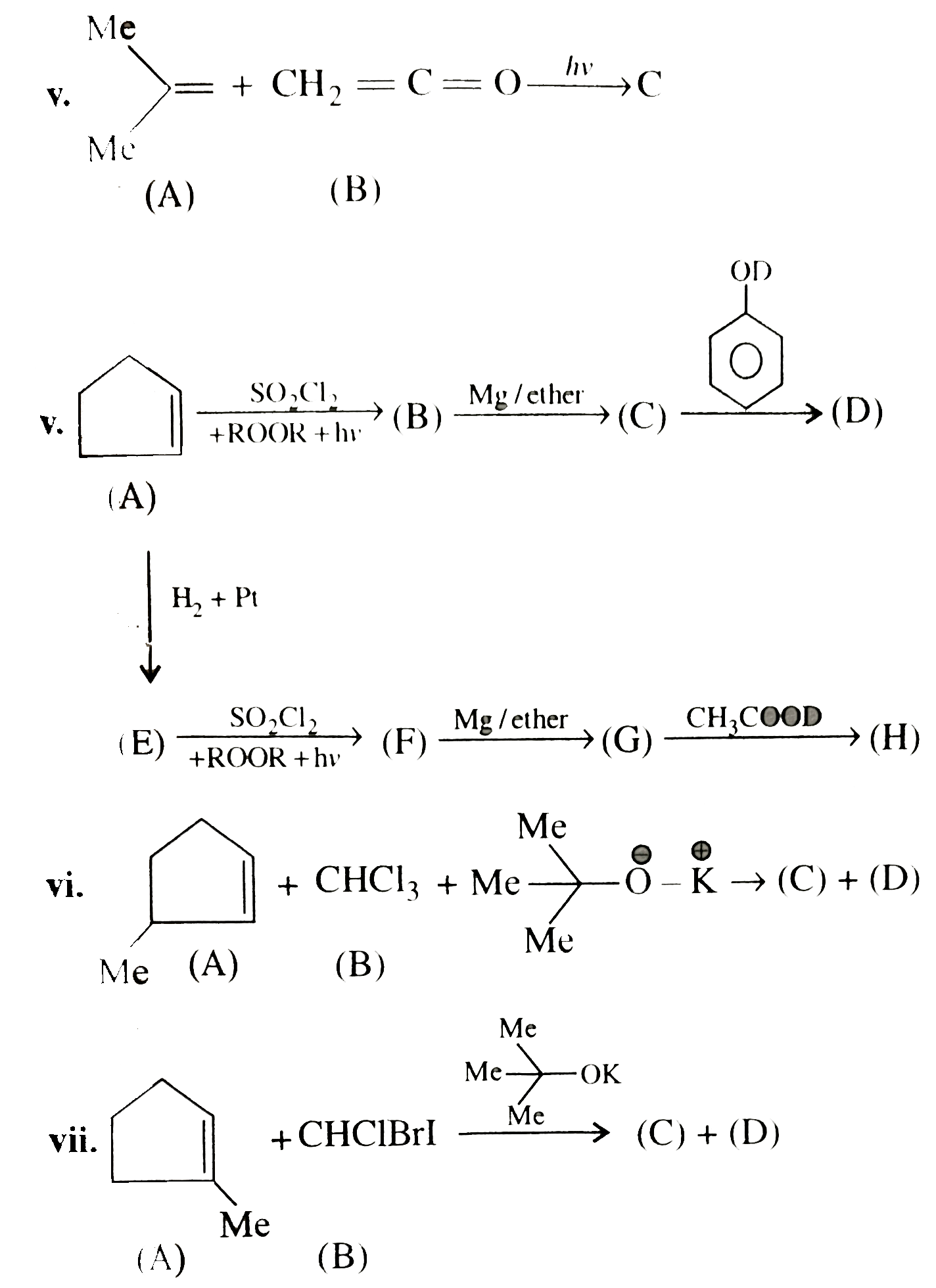Clemmensen's reduction will convert cyclohexanone into:
A
Cyclopentanone
B
Cylohexane
C
n-Hexane
D
Benzene
Video Solution
Text Solution
The correct Answer is:B
Clemmensen's reduction converts (C=0)→(CH2)

|
Topper's Solved these Questions
- ALDEHYDES, KETONES AND CARBOXYLIC ACIDBOOK - A2ZCHAPTER - ALDEHYDES, KETONES AND CARBOXYLIC ACIDEXERCISE - Assertion-Reasoning Questions
7 Videos
- ALCOHOLS, PHENOLS AND ETHERSBOOK - A2ZCHAPTER - ALCOHOLS, PHENOLS AND ETHERSEXERCISE - Section D - Chapter End Test
30 Videos
- BIOMOLECULESBOOK - A2ZCHAPTER - BIOMOLECULESEXERCISE - Section D - Chapter End Test
30 Videos
Similar Questions
Knowledge Check
Stephen's reduction convert
Aacyl chloride to aldehydeBcyanide to aldehydeCcyanide to carboxylic acidDcyanide to ketonesRosenmund's reduction convert
Acarboxylic acid to aldehydeBketonone to 2∘ - alcoholCacyl halide to ketoneDacyl halide to aldehydeThe Clemmensen reduction of acetone yields
AEthanolBEthanalCPropaneDPropanol
Complete the following reactions:
i.
ii.
iii. Converted cyclohexanone to cycloheptane and vice versa.
View SolutionCertain cyclic 1, 3-diketone give, under Clemmensen reduction, a fully reduced product along with a monoketone with ring contraction. Explain.
View SolutionWolff Kishner reduction converts cyclobutanone to
View SolutionDuring Clemmensen reduction, a carbonyl group is converted into
View SolutionThe Clemmensen reduction consists of refluxing the ketone or aldehyde with concentrated hydrochloric acid containing amalgamated
View Solution

 to
to